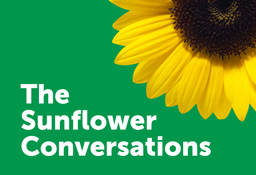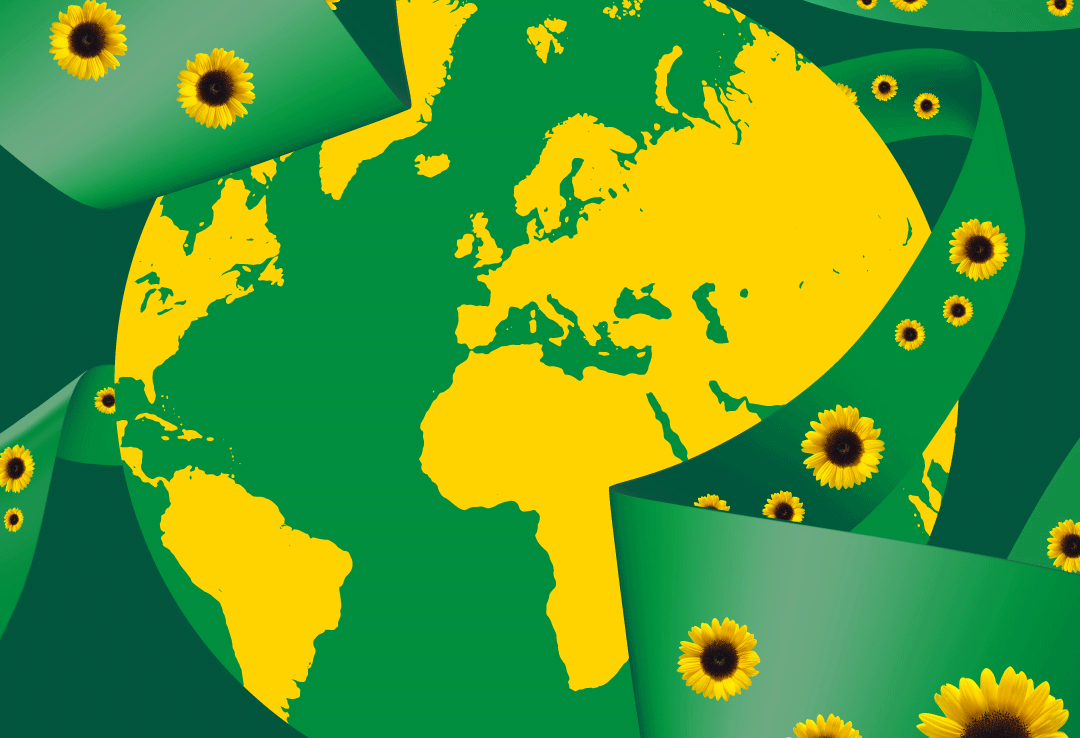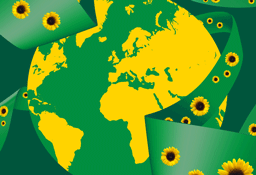A place on the bus
Coach hire and transportation company, Readybus has joined the global Hidden Disabilities Sunflower network.
By becoming a member of the Sunflower, Readybus estimates it will help tens of thousands of children and adults with non-visible disabilities that choose to wear the lanyard.
The Berkshire-based coach company, whose owners have an autistic child, will display Sunflower signs on each of its 64 coaches, and all its drivers will undergo training to ensure they can help anyone with an invisible disability feel safe and assured while travelling.
Paul White, CEO, Hidden Disabilities Sunflower said: “Living with a hidden disability can make daily life more demanding for many people, but it can be difficult for others to recognise, acknowledge or understand the challenges faced. We are delighted that Readybus will be raising awareness of non-visible disabilities to the thousands of adults and school children that travel with them each week. Readybus’ support increases our opportunity to educate wider society about disabilities that you cannot see. Becoming a member of the Sunflower means Readybus will have the tools to recognise and support individuals with non-visible disabilities and its drivers to become confident in providing Sunflower wearers with additional help or assistance.”
Co-owner Matt Clayson, who is delighted to be part of the Sunflower, said: “I know only too well from having a son with autism, the difficulties he has coping with everyday life. Our son can’t travel to school on the transport provided because of a traumatic experience a few years ago, with a driver who didn’t understand how autism impacts him. It’s meant we’ve been initiating various measures with drivers to ensure they’re aware of people like our son and others who might need a little bit of reassurance. As we transport thousands of children every day on our coaches, it’s vital those that who have autism, anxiety or any other hidden disability, can feel safe and secure when travelling to and from school. Becoming members of the Sunflower scheme will ensure we can pass on the key messages around hidden disabilities through our drivers, to everyone who boards our coaches.”

Readybus employs a number of people with hidden disabilities, including driver Steve Newman and scheduler Darryl Crick, who has two autistic daughters.
Steve said: “I know the support that Matt provides for employees like me, and to be able to help the thousands of people we transport each week, is really important. We can help increase awareness of hidden disabilities to both children and adults every day, which means more and more people become aware of them and ensure their behaviour tunes into the needs of everyone around them.”
Darryl said: “My wife and I spend a lot of time caring for our two girls, but I get amazing support from Matt to have flexibility around my work, to ensure my daughters feel safe and secure every day. Being part of the Sunflower scheme means we can be visible to more people on our support for hidden disabilities, and this means a huge amount to my daughters’ welfare.”
A place in the country

The importance of ‘accessibility’ is high on the agenda at award-winning, visitor attraction Thornton Hall Country Park in North Yorkshire/Lancashire. And they are delighted to have signed up to the Hidden Disabilities Sunflower, to support their employees and visitors with non-visible disabilities.
Park owners Chris and Emma Harrison feel strongly that all ages and abilities should be able to access and enjoy the Park’s activities and special events.
Owner Emma Harrison says “It is hugely important to us that ALL our visitors have a fantastic experience and can fully access the attraction and our special events. Our amazing team always go above and beyond to assist our visitors, including those that may need extra support or by adapting an activity so they can take part. As new members of the Hidden Disabilities Sunflower, we can continue to highlight the importance of accessibility, not only at our attraction but across the tourism sector.”
Following a recent accessibility survey, Thornton Hall Country Park is working with Dr Leighanne Higgins (Senior Lecturer in Consumer Behaviour at Lancaster University Management School, Department of Marketing) on accessibility planning and strategy building. The attraction is looking to further improve its accessibility in 2023 with the introduction of quiet sessions in the soft play centre and the provision of disability training for employees.
Thornton Hall Country Park colleagues have received some great feedback. JLD, Leeds (Trip Advisor) says “Our boy has additional needs … special thanks to James for been fantastic with our son when he was upset, getting him to help so he had a purpose whilst we watched our daughter on a ride - something so simple that had such a great impact on our visit.”
Paul White, CEO, Hidden Disabilities Sunflower said: “The Hidden Disabilities Sunflower is an obvious inclusion to Thornton Hall Country Park’s accessibility offer. The Sunflower is a discreet tool that will further assist staff in supporting visitors with non-visible disabilities who may need some extra help, patience and understanding. Being able to experience a full and fun day out is made even more possible by the team’s positive approach to disability inclusion.”
A place to climb

Go Ape has become a member of the Hidden Disabilities Sunflower.
As members of the global Hidden Disabilities Sunflower network, Go Ape will enhance everyone’s knowledge and understanding of non-visible disabilities and how to offer support, whilst encouraging inclusivity and striving for greater accessibility for both customers and colleagues.
All Go Ape sites have Sunflower merchandise in the form of stickers, lanyards and wristbands, which can be given to customers who wish to use them free of charge.
All Go Ape co-owners have access to Hidden Disabilities Sunflower training to identify and support anyone wanting to wear the Sunflower.
Jack T, Go Ape, Matfen Instructor said: “Before Go Ape, I worked as a Youth Worker specialising in Special Education Needs (SEN), including young people with hidden disabilities. I am autistic and dyspraxic, and one of the things that appealed about Go Ape when I first applied was that they were so open and accessible. Our HR team helped me find the right Go Ape site and role for me.
I really enjoyed working with our team to bring the Sunflower to Go Ape and am certain that it will help individuals with hidden disabilities to enjoy their days out even more. The Sunflower merchandise makes hidden disabilities visible and helps us and the Sunflower wearers to navigate their adventure in a fun and stress-free way.”
Emma S, Go Ape, Leeds Castle, Activity Manager said: “I was researching training programmes to upskill my team about hidden disabilities when I came across the Hidden Disabilities Sunflower initiative. Then, once I read up about them, I started noticing Sunflowers everywhere I went.
A lot of my family members have hidden disabilities, so accessibility and inclusivity are topics that I’ve always been passionate about. My mum fostered young people for nearly 15 years so I’ve been lucky to see the impact small things can have on those that need a bit more support.
At our Go Ape sites we ask that customers make our teams aware of any additional needs in their groups, but, I thought that the Sunflower initiative could help to further streamline this process.
The Hidden Disabilities Sunflower merchandise, now available at our cabins, will immediately allow our teams to recognise individuals who may require additional assistance and a little more patience. It will also reassure loved ones that we know how to support Sunflower wearers.”
A place to shop

Currys have joined the global Hidden Disabilities Sunflower network, to give their customers a discreet way to signify that they have an invisible disability and may need some help and extra time.
The Sunflower lanyards will be available for customers to pick up in any Currys store across the UK.
Following a highly successful trial across the Northwest of England and Wales, Currys are also launching ‘Quiet Hour’ in store every Monday to Friday until 11am. For the first hour of the day, they’re reducing noise in-store, keeping lights low and making sure there are no flashing screens to ensure a calmer place to shop, better supporting their neurodiverse customers.
Currys Quiet Hour is a dedicated time where they change the shopping experience in-store to be more accessible for certain customer groups who may be impacted by different sounds, lighting and sensations in store. This is most beneficial for neurodiverse customers who have conditions such as ADHD, Dyspraxia, Dyslexia, Autism and many others. It’s estimated that 1 in 7 people (more than 15% of the UK) have neurodiverse differences so Currys decided that it needed to adapt to better suit its diverse customer base.
Examples of the in-store environment during Quiet Hour include:
- The majority of sounds will be reduced and consistent throughout the store.
- As customers walk around there won’t be multiple sound sources, so whilst most of the tech will be switched on, sound will be off.
- All TV’s and screens will be switched off.
- If a customer requires a demo of sound, Currys colleagues will assist with this and will be extra courteous to other customers close by.
- Currys will offer a sensory map by store - this will help customers identify areas that may be a triggering environment, it will also highlight quieter areas of the store where customers can go if they start to feel overwhelmed.
- Currys will offer customers with non-visible disabilities a Sunflower lanyard if they wish, a discrete way to let others around them know that they may need a little extra help whilst shopping.
Paula Coughlan, Currys’ Chief People, Comms and Sustainability Officer said: “I am really proud of this initiative, which shows our commitment to making Currys a place where everyone feels comfortable to shop. It’s a really big step for a retailer of our size and scale, and really demonstrates our commitment to diversity and inclusion. The feedback from the trial was overwhelmingly positive, and I am delighted that we are becoming a more inclusive retailer.”
Paul White, CEO, Hidden Disabilities Sunflower, said, “Currys is the biggest and first electrical retailer to join the Hidden Disabilities Sunflower network. Their work to incorporate the Sunflower into the Quiet Hours shopping experience is of huge benefit to, not only neurodiverse customers, but also to people with other disabilities. The relaxed atmosphere will allow customers to browse and decide which purchase is right for them without feeling overwhelmed. Currys staff are trained to recognise Sunflower wearers and offer help and more time.”





